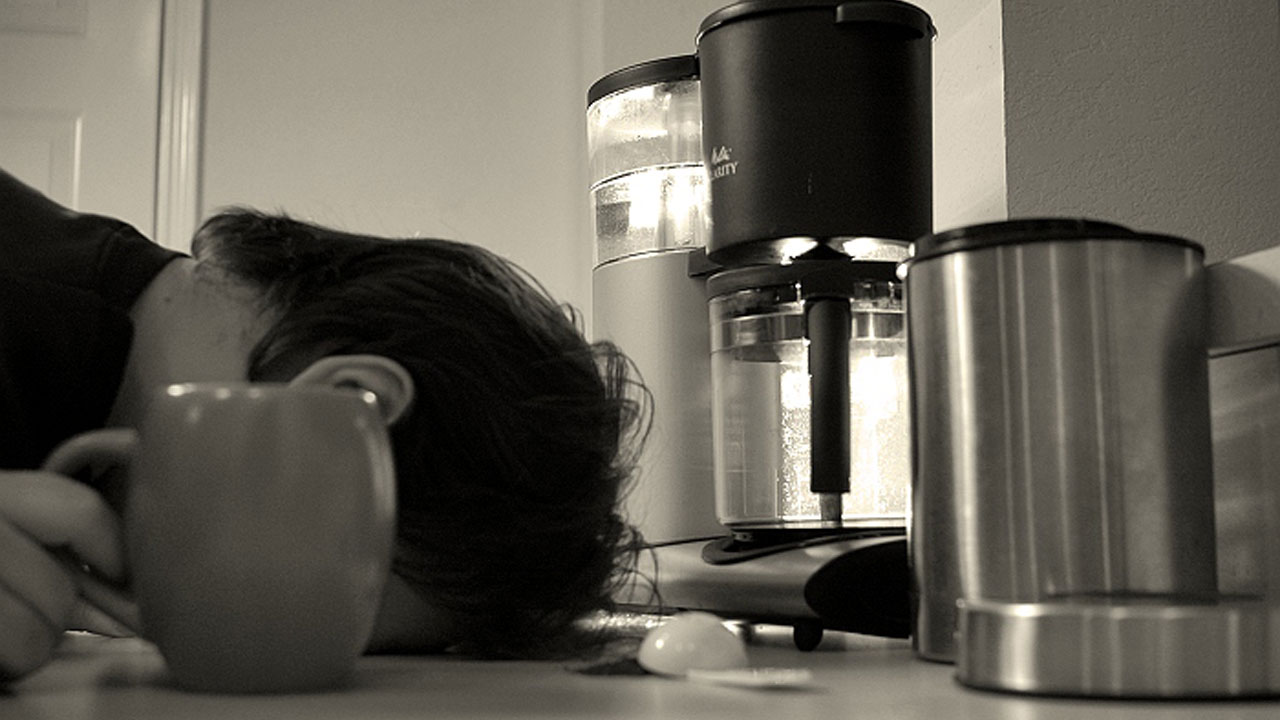Recent studies have shown that everyone’s favorite drug caffeine can be even more effective. By taking a nap immediately after drinking coffee, you can actually allow the caffeine more neurological room to wake you up. Caffeine works by replacing a neurotransmitter called adenosine, which accumulates over the course of a normal day as a byproduct of brain activity. Enough adenosine makes you tired, the natural result of working out your brain. Caffeine blocks these adenosine receptors, which lessens their sleepifying effects.
When you sleep, adenosine is cleared from your brain. Scientists have found that if you drink caffeine and then take a nap for 20 minutes or less, before reaching deeper stages of sleep where “sleep inertia” can kick in, the caffeine will have a greater effect, as more of it will be able to block the cleared out adenosine receptors. It takes about 20 minutes for caffeine to pass through your digestive system and reach your brain anyway, so you’re not wasting any precious receptor-blocking time by napping.
Studies have proven that coffee naps are even more effective than coffee or naps alone, via Vox:
In a few different studies, researchers at Loughborough University in the UK found that when tired participants took a 15-minute coffee nap, they went on to commit fewer errors in a driving simulator than when they were given only coffee, or only took a nap (or were given a decaf placebo). This was true even if they had trouble falling asleep, and just laid in bed half-asleep during the 15 minutes.
Another study in Japan found subjects performed better on memory tests after a coffee nap and perceived themselves as less tired when compared to people who “solely took a nap, or took a nap then washed their faces or had a bright light shone in their eyes.”
Another study showed that coffee naps could be effective even in replacing real sleep:
As part of one study, 24 young men went without proper sleep for a 24-hour period, taking only short naps. 12 of them, who were given just a placebo, performed markedly worse on a series of cognition tests, compared to their baseline scores. 12 others, who had caffeine before their naps, managed scores roughly the same as their baselines for the entire day.
(Photo: Daniel James)


